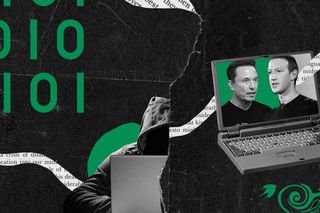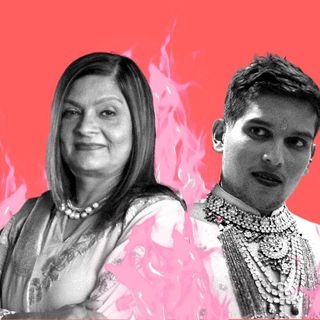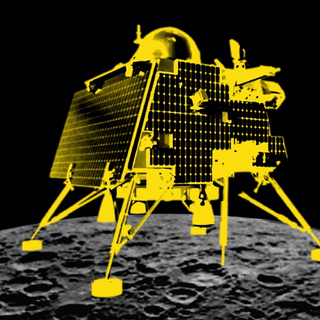
Social Media’s Profiting From Our Misery. It Doesn’t Have to Be This Way
We rethink our relationship with cyberspace – by revisiting McKenzie Wark’s subversive ‘A Hacker’s Manifesto.’

In ‘Manifesto This,’ we dialogue with a radical text to dream of a better world.
Social media is a trap. How do we free it? Turns out, we free ourselves first. In this installment, we rethink our relationship with cyberspace – by revisiting McKenzie Wark’s subversive A Hacker’s Manifesto.
I. “In art, in science, in philosophy and culture, in any production of knowledge where data can be gathered, where information can be extracted from it, and where in that information new possibilities for the world are produced, there are hackers hacking the new out of the old. While we create these new worlds, we do not possess them. That which we create is mortgaged to others, and to the interests of others, to states and corporations who monopolize the means for making worlds we alone discover. We do not own what we produce—it owns us.”
Everything we say, do, create, think, and feel, is virtual now. But we don’t own it. A handful of American men, and one South African, have everything. We know this – but we consider it inevitable.
The digital space is commodified – the Internet can be the commons, but social media platforms are owned, sequestered, and governed by the whims of these men.
The cost of access to a “free” service is unfreedom: the loss of control over your own metadata. We know they sell our likes, dislikes, histories, quirks, and patterns to third parties – in the process, our many selves on the Internet turn into commodities for sale. We’re fed back ads that are meant to change how we think, see, and experience the Internet. Digital space is not only unfree today, it’s also where our own attention is trafficked and sold back to us. Guided by the logic of ownership of the commons, social media platforms fracture us from our own selves, turn us into finite, quantifiable data points. Human beings are not finite.
Enter: hacking. Hacking isn’t limited to computers. Hacking is anything we do to create and change. We’re hackers when we make art, write stories, play music – we’re adding something new to the world. The world we create as a result is infinite. We need to free it from the clutches of The Machine.
II. “Information is ‘non-rivalrous’—it knows no natural scarcity. Unlike the objectified products of land and capital, one’s consumption of information need not deprive another of it.”
Social media platforms exist because of the information we create as hackers. They acquire shape and purpose because of the richness of human life – we had friends, we liked things, and we followed others already, before the platforms came along. Now, through a process of commodification, we’re redirected against our will to pay attention to what the algorithms want us to look at, follow what they want us to follow. To free ourselves from a world where we’re locked out of the information we create, we must go back in time.
Through a process of economic and social transformation, we’ve turned land and water from commons to property. The Earth should have been free for all to access – now, it’s been divided up into pockets belonging to owners and citizens. Citizens of one land cannot freely go elsewhere. Non-owners of a property cannot freely enter it. We’re doing the same thing to digital space – dividing it up into pockets in the form of echo chambers, advertisements, and algorithmically constructed, personalized feeds.
But information is like the air. It’s infinite, simultaneously accessible. One person’s consumption of it doesn’t preclude another’s. Billions can partake in information-sharing without the information at hand ever getting exhausted or depleted.
Streaming, platforms, paywalls all create an artificial information scarcity. The internet commodifies information – and has led us all to believe that it’s the natural, default state of things. The logical fallacy: information is equivalent to property. It isn’t. Even property isn’t equivalent to property; land never had to be enclosed and sealed off to everyone else, for the sole ownership of one entity. Information, like land, is commons.
Under platform and surveillance capitalism, an infinite resource is treated – and priced – like a finite commodity. But there’s power in knowing what this means: if the “owner” thinks information is a commodity, information can always be taken back. If the “owner” creates a global regime of digital colonialism, it’s possible to decolonize. The truth about information being infinite shows that the default of digital space, which depends on information, is not private, monopolistic ownership. The default setting, really, is freedom and infinite space.
III. “To hack is to express knowledge in any of its forms. Hacker knowledge implies, in its practice, a politics of free information, free learning, the gift of the result in a peer-to-peer network. Hacker knowledge also implies an ethics of knowledge open to the desires of the productive classes and free from subordination to commodity production.”
Ideologically freeing ourselves means redefining how information relates to us. Social media platforms have long stopped serving the people. They serve the monopolists. The solution isn’t to go back to a feudal structure of ownership. If information is not a commodity, it’s a gift. Gifts are infinite, reciprocal, mutual, and non-exclusive. Information as a gift gave us the Internet, before it was recaptured by proprietary software, catalyzed by an infamous “Open Letter to Hobbyists.” Hackers – writers, poets, programers, artists, musicians – produce knowledge. They mustn’t be forced to submit to a system of exchange that mandates their sharing of knowledge as finite and profitable. When we realize the nature of information – free, infinite, and usable by infinite people simultaneously – we realize the pointlessness of imposing the money regime on an entity that was never scarce. When we begin to hack – that is, gift – everything collapses. That’s the point from which we rebuild.
“If property is theft, then it is theft, in the first instance, from nature. The gift has the capacity to return nature as itself to itself,” Wark writes. In short, information isn’t a commodity. It’s a gift.
IV. “In this tiresome age, when even the air melts into airwaves, where all that is profane is packaged as if it were profundity, the possibility yet emerges to hack into mere appearances and make off with them. There are other worlds and they are this one.”
How do we get there? First, rescind ownership of any information. It’s true that we don’t own what we produce thanks to surveillance capitalism – but actually, nobody should. Owning the commons leaves us doomed to repeat the mistakes of history. “Debate about user ‘rights’ has been limited to the human, and limited to a view of the human merely as endowed with property and privacy rights. Rather like Henri Lefebvre’s right to the city, one needs a right to the stack that includes those without property,” Wark writes in Sensoria.
Technologically freeing ourselves isn’t as hard as it seems. It doesn’t require overthrow but subterfuge.
Treating social media as commons reverses the power dynamic, where platforms are obligated to comply with users. Not only that but the solution already exists. “Old social media,” like Internet Relay Chat, used to be our digital commons. If these have receded into the background, it’s because commercialization replaced – and appropriated – the commons.
Fediverse and LibreSocial are existing models that are free, open source, and democratic. Mastodon, popular in spurts, is decentralized, and can become a space for collaborative platform building.
When all else fails: hack, pirate, and take information back. And above all, sustain those who live to create information. In a system hostile to extra-financial ways of being, there’s still a way to do that: cooperative platforms, mutual aid, and collective solidarity.
Finite commodities exist as property, and it would take a systemic overhaul to change the relations of ownership over things. Information, being infinite, doesn’t have to be property – the commodification of information, in fact, is not a structure to be overthrown but a glitch to be corrected. We can stop adhering to the rules of platforms that treat information as scarce.
The platform – and cyberspace – is what we make it. The Internet doesn’t exist without us.
Rohitha Naraharisetty is a Senior Associate Editor at The Swaddle. She writes about the intersection of gender, caste, social movements, and pop culture. She can be found on Instagram at @rohitha_97 or on Twitter at @romimacaronii.
Related


Sizzle This: Should Reality TV Just Go Away Now?
